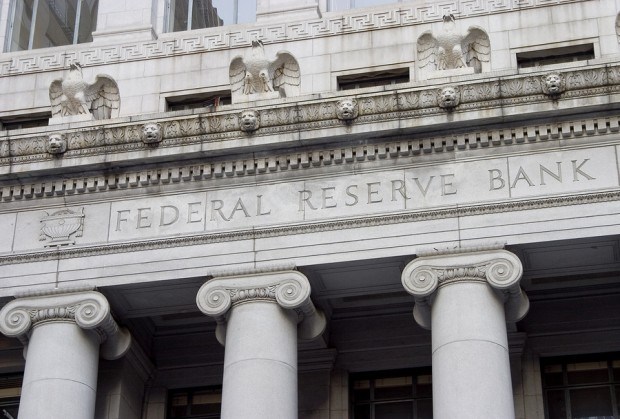BlackRock Inc., the world’s largest asset manager, said uncertainty about when the Federal Reserve will begin to slow its monthly bond purchases undermined insurers’ confidence about investing in higher-yielding debt.
A survey in May found that 73 percent of insurers were boosting allocations to bank loans and other fixed-income securities with higher yields, BlackRock said in a report released today. Only 52 percent said they were diversifying fixed-income investments in July, after Fed Chairman Ben S. Bernanke signaled a taper could begin this year. The Fed unexpectedly opted last week to sustain its pace of purchases.
“The confidence levels have dropped” for insurers, David Lomas, head of New York-based BlackRock’s insurance business, said today at a media briefing about the survey results. “With this noise around tapering, it’s changing the conviction they have around moving into some of these assets.”
The Fed has been buying $85 billion of bonds a month to help the U.S. recover as it emerges from the deepest slump since the Great Depression. The program, known as quantitative easing, or QE, has lowered bond yields, pressuring investment income at insurers and driven them to change strategies.
“‘QE or not QE?’ — That is the question insurers need the Fed to answer definitively as the implications for portfolios, investment returns and ultimately their businesses are so dramatic,” Lomas said in a statement today about the survey, in a play on the line from Shakespeare’s “Hamlet.”
Program’s End
Insurance executives at Axa SA, Berkshire Hathaway Inc.’s General Re and MetLife Inc. have said the Fed’s policies hurt long-term bond investors. Lincoln National Corp. said in June that it was finding value in assets such as middle-market loans, private placements and commercial mortgages after hiring Ellen Cooper from Goldman Sachs Group Inc. to oversee investments.
“After two decades of declining interest rates, we see a period where interest rates should trend up over time,” Lincoln Chief Financial Officer Randy Freitag said today at a conference in New York hosted by Keefe Bruyette & Woods.
About half of insurers surveyed in July said they expected the bond-buying program to end in one to two years, according to BlackRock. Thirty-five percent said it would end in more than two years, and 13 percent said it would end within a year.
Federal Reserve Bank of St. Louis President James Bullard, a voter on policy this year who has backed record stimulus, said the decision not to slow bond buying last week was a close call and “small” tapering is possible next month.
Let’s Wait
“That was a borderline decision” after weaker data came in, Bullard said Sept. 20 in a Bloomberg Television interview. “The committee came down on the side of, ‘Let’s wait.'”
To prepare for a wind-down of quantitative easing and higher interest rates, insurance companies plan on shortening durations, increasing credit exposure and using more derivatives, according to Lomas.
Insurers are trying to “ride out the rate rise through more nimble strategies and techniques,” he said.
BlackRock’s financial institutions group managed $306 billion for 151 insurers in 20 countries at the end of June, according to the statement. The company also provides risk- management services to the industry.
The Economist Intelligence Unit conducted the surveys for the asset manager. The results in May included responses from 206 companies, while the July analysis included information from 100 businesses.
With assistance from Marci Jacobs in New York. Editors: Dan Reichl, Dan Kraut





















 Berkshire-owned Utility Urges Oregon Appeals Court to Limit Wildfire Damages
Berkshire-owned Utility Urges Oregon Appeals Court to Limit Wildfire Damages  How Americans Are Using AI at Work: Gallup Poll
How Americans Are Using AI at Work: Gallup Poll  What Analysts Are Saying About the 2026 P/C Insurance Market
What Analysts Are Saying About the 2026 P/C Insurance Market  Lessons From 25 Years Leading Accident & Health at Crum & Forster
Lessons From 25 Years Leading Accident & Health at Crum & Forster 